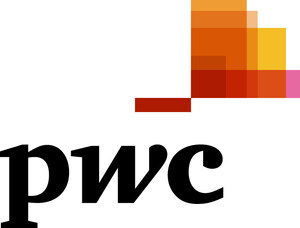NEW YORK, June 8, 2011 /PRNewswire/ -- Seventy-six percent of Fortune 50 companies are either in the health industry or have health divisions, according to PwC US. The booming health market, which is expected to account for nearly one-fifth of U.S. GDP by 2019, is driving a surge of activity from companies looking to mine opportunities for growth, differentiation and jobs. However, in a report published today by PwC's Health Research Institute entitled The New Gold Rush, PwC says that companies new to healthcare will need to stake their claims carefully. If they fail to understand market needs, consumer expectations and how they will get paid, they may find only fool's gold.
(Logo: http://photos.prnewswire.com/prnh/20100917/NY66894LOGO )
Seen as one of the few bright spots in an otherwise sluggish economy, the health market is large, growing and hungry for fresh ideas, innovation and new participants, which can provide goods and services with higher quality or lower costs. PwC found that healthcare is creating new companies, jobs and markets for both traditional health organizations and new entrants from such industries as technology, telecommunications and retail. According to PwC's research:
- Nearly one in three American adults have worked, now work or would like to work in healthcare. Jobs in healthcare increased 65 percent between 1990 and 2009, while the rest of the workforce increased only 16 percent over the same time period.
- Of the Fortune 50 companies that have a stake in the healthcare industry, 24 percent would be considered traditional healthcare companies, but an estimated 52 percent are entering the healthcare market in non-traditional ways.
- A new generation of tech-savvy consumers is creating a new market for digital and interactive health. Consumers between the ages of 18 to 24 are two times more interested in mobile health applications or programs and three times more interested in health-related video games than those over the age of 65.
- Consumer demand for convenience and transparency in services and pricing is opening up channels for alternative sources of healthcare services. For example, the use of retail health clinics almost doubled in the past three years, from 10 percent of consumers who sought treatment at a retail health clinic in 2007 to 17 percent in 2010.
- Consumers' willingness to pay out-of-pocket for non-traditional healthcare products and services represents as much as $13.6 billion of new revenue annually, including $4 billion on health-related video games, $8.9 billion on resources that rate physicians and hospitals and $700 million on mobile health applications.
"This is an exciting time for innovators who have a vision for what healthcare can be and the courage to act on it," said Kelly A. Barnes, US health industries leader, PwC. "The healthcare industry is not for the fainthearted. It is a highly regulated, complex industry, built on a system of third-party payments, and operates on principles foreign to companies that have succeeded in other industries. The organizations with the greatest potential for success will be those who understand the dynamics of the industry and identify the right niche where they can play a role in making the health system better."
PwC's report identifies four main roles in which companies might find the best opportunities to flourish, and provides case studies of successful pioneers in each role, including the following:
- Fixers. Companies that seek to help traditional health companies become stronger by attacking the parts of the health system that are dysfunctional, redundant, bifurcated or unsustainable. They search for opportunities to simplify and improve processes to reduce costs in a wasteful system by applying technology and creating more efficient delivery models and care settings.
- Implementers. Companies that understand that government spending programs, new regulations and industry standards shape the healthcare operating environment, and provide ways to help health organizations not only comply and adapt to change, but find new opportunities and business models to thrive in this new environment. These companies see the silos in healthcare breaking down as organizations work across traditional boundaries, collaborating on innovation with a unified purpose toward government's aim of achieving a more integrated, efficient health model.
- Retailers. These companies can bring leading practices for prospering in high-volume, standardized markets with low margins. They use their deep customer relationships and ubiquitous access to serve price-sensitive consumer markets and the demand for choice and convenience.
- Connectors. Companies that succeed will be those that link information and technology across the health system. They look for ways to provide meaningful analysis and context of health data and information so that clinicians and consumers can make better decisions about health behavior.
In addition, the report identifies key considerations for companies seeking opportunities in both the direct-to-consumer and business-to-business health markets. According to PwC, before direct-to-consumer health companies decide where to enter or place big bets in this market, they need to understand how they will get paid, the niche they want to focus on and how they will protect their territory once they have staked a claim. Business-to-business health prospectors, on the other hand, need to determine the role that increased collaboration across traditional organizational boundaries will play in their strategies and how they will protect their territories.
A full copy of PwC's The new gold rush: Prospectors are hoping to mine opportunities from the health industry is available for download at www.pwc.com/us/goldrush
Research Methodology
To inform its research, PwC HRI conducted a thorough literature review, performed in-depth interviews and, in the fall of 2010, commissioned an online survey of more than 1,000 consumers, balanced by age and gender.
About PwC's Health Research Institute (HRI)
PwC's Health Research Institute (www.pwc.com/hri) provides new intelligence, perspectives, and analysis on trends affecting all health-related industries. The Health Research Institute helps executive decision makers navigate change through primary research and collaborative exchange. Our views are shaped by a network of professionals with executive and day-to-day experience in the health industry.
About PwC's Health Industries Group
PwC's Health Industries Group (www.pwc.com/healthindustries) is a leading advisor to public and private organizations across the health industries, including healthcare providers, pharmaceuticals, health and life sciences, payers, employers, academic institutions and non-health organizations with significant presence in the health market. Follow PwC Health Industries at http://twitter.com/PwCHealth.
About the PwC Network
PwC firms provide industry-focused assurance, tax and advisory services to enhance value for their clients. More than 161,000 people in 154 countries in firms across the PwC network share their thinking, experience and solutions to develop fresh perspectives and practical advice. See www.pwc.com for more information.
© 2011 PwC. All rights reserved. "PwC" and "PwC US" refer to PricewaterhouseCoopers LLP, a Delaware limited liability partnership, which is a member firm of PricewaterhouseCoopers International Limited, each member firm of which is a separate legal entity.
SOURCE PwC
WANT YOUR COMPANY'S NEWS FEATURED ON PRNEWSWIRE.COM?
Newsrooms &
Influencers
Digital Media
Outlets
Journalists
Opted In




Share this article